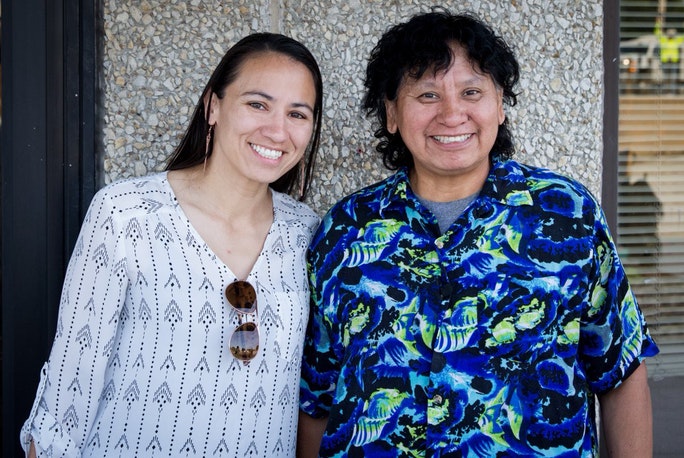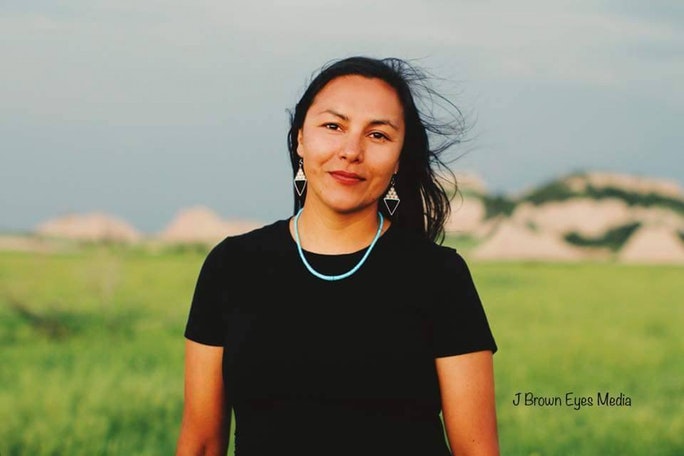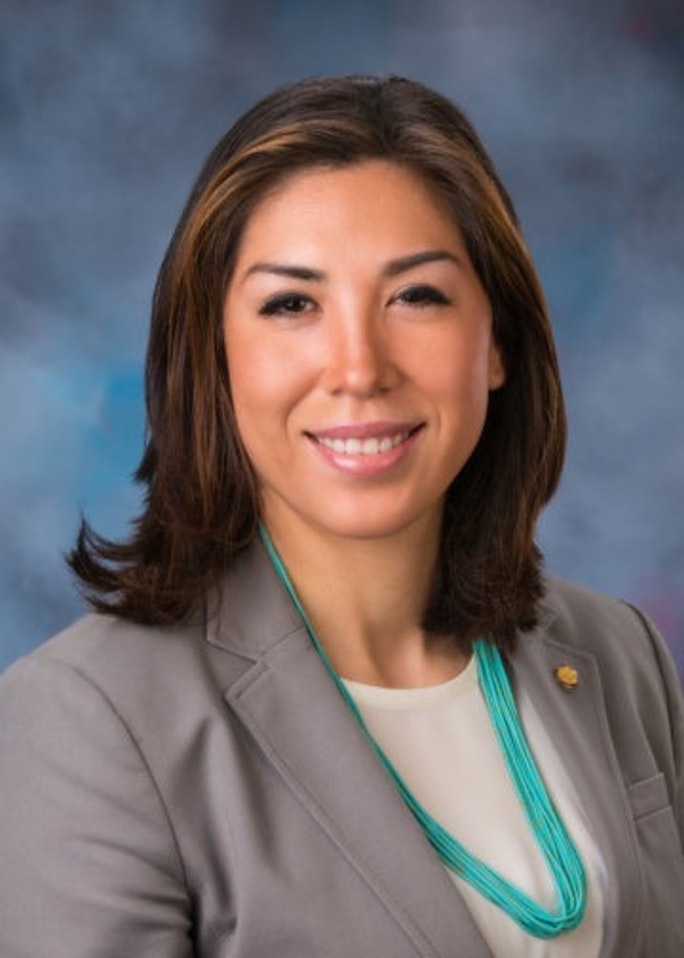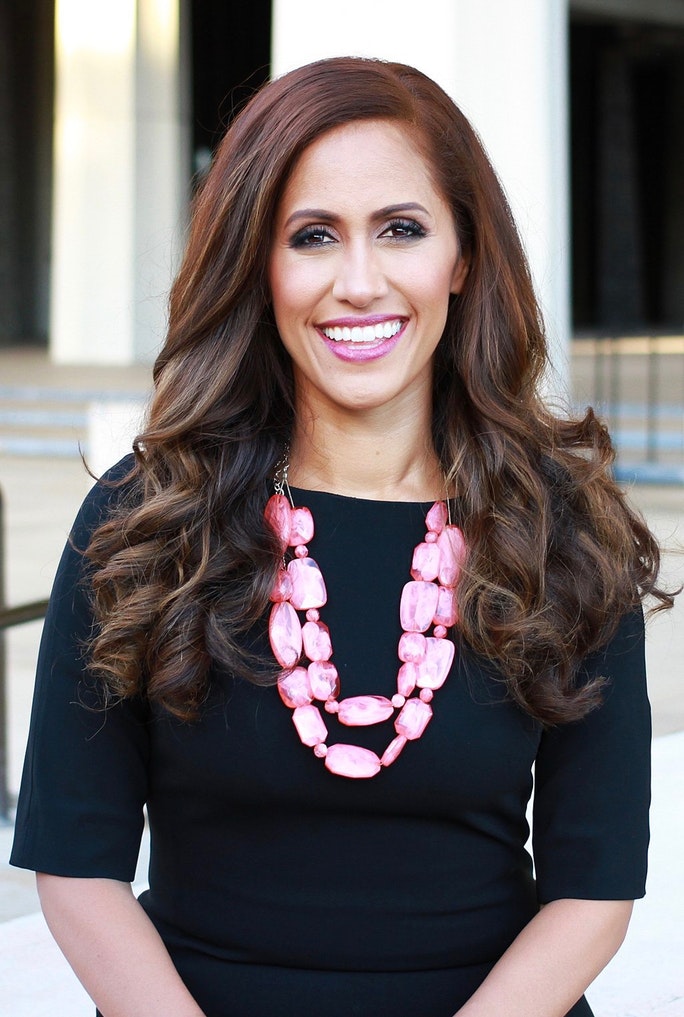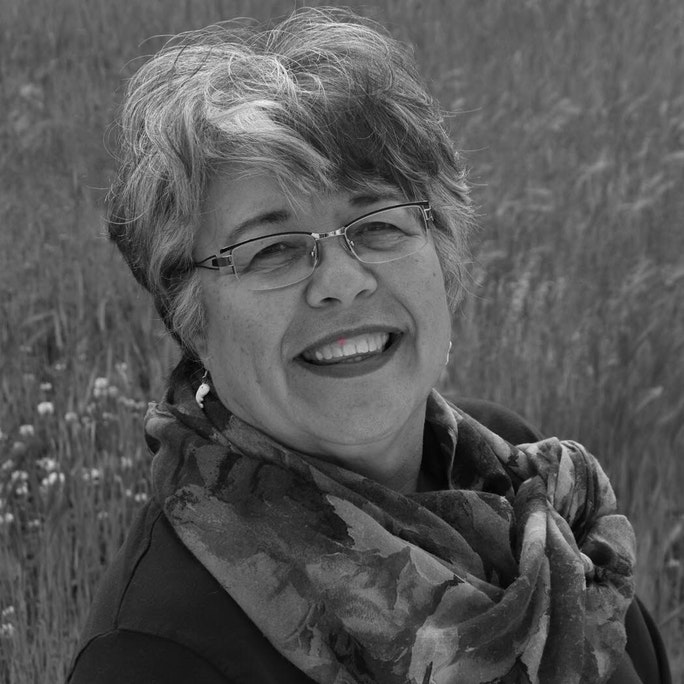 |
Canku Ota
|
 |
|
(Many Paths)
|
||
|
An Online Newsletter
Celebrating Native America
|
||
|
August 2018 - Volume
16 Number 8
|
||
|
|
||
|
Native Candidates
Are Rewriting History
|
||
|
by Mark Trahant - Indian
Country Today
|
||
Stories of #NativeVote18 candidates from across the country at the 100 day mark Countdown. There are now less than 100 days until Election Day. That means little time for campaigns to reach every possible voter or to raise money to get their message out. The elections are 100 days away and there are far more than a hundred stories. Stories about candidates. Stories about races where the Native vote can make a difference. Stories about registration drives -- and making sure that Native Americans have access to ballots. And stories about the last flurry of primary contests. Let's start with that.
The Kansas primary goes national Sharice Davids, Ho Chunk, is running for Congress in Kansas third congressional district. This race has taken on national implications as sort of a fight between establishment Democrats and Bernie Sanders. In the minds and tweets of many Sanders supporters, Davids is not progressive enough. This is a district that Hillary Clinton won in 2016 and Davids' best case is that her record and ties to the district make her the ideal candidate come November. This seat is now held by Rep. Kevin Yoder, a Republican. Davids has been ignoring Sanders' support of one of her opponents, Brent Welder, and instead been picking up endorsements from elected officials and citizens within the district. Davids tweeted Friday. "It's been an amazing week. We launched our ad, welcomed 100s of people into the campaign & stepped into the national spotlight as Election Day approaches. But the highlight was going w/ my mom as she cast a ballot for me. #KS03 (Previous: A Vice President & now Bernie Sanders) Vote early Early voting and vote by mail has already begun in many parts of the country. Early voting has become such an important part of modern campaigns because it allows a candidate to track their likely voters and get a good idea about how many votes are cast before Election Day. Then, in theory, you can make calls, and get voters to the polls on Election Day to seal the deal. Early voting is actually an old idea. It was once seen as a way to protect the rural vote, giving people more time to cast a ballot. But in the hectic modern world it's an insurance policy for those of us who get busy, travel, or just find it difficult to cast a ballot on Election Day. Citizens like early voting. It now accounts for more than a third of all ballots cast nationwide.
Top two primary in Washington Dino Rossi is a long time politician who was once "elected" governor of Washington in 2004. That is until ballots were recounted again and again and it turned out he lost the race by a 133 votes (out of 2.6 million votes cast). He's Tlingit but rarely mentioned his affiliation until he ran for governor a second time. Rossi has become the Washington Republican Party's reliable candidate. Since losing the governor's race twice he has ran for the U.S. Senate and then was appointed twice to fill in as a state senator for office holders. He's running to replace a Republican, Rep. Dave Reichert, in the 8th congressional district. Washington uses the top two primary system. So voters on Aug. 7 will pick two candidates for the November election, regardless of party. Republicans and their allies will be spending millions to hold this seat. The National Republican Congressional Campaign Committee recently named Rossi, 59, as one of its "young guns" meaning that third-party dollars and advertisements will crowd Seattle media before election day. "These candidates have met a series of rigorous goals and surpassed program benchmarks to establish a clear path to victory," the campaign committee said. "Young Gun candidates represent the most competitive congressional seats in the 2018 election cycle." Who will vote? This is always the question for Native American voters. Previously Native people turned out and helped elect Barack Obama. Eight and four years later not so much. And Donald J. Trump won the presidency while losing the popular vote. The system is skewed -- and the only way to get it back in balance is for more of the 100 million non-voters to step up and cast a ballot. (And for Indian Country that number is more than a million non-voters.) It's true that states and other governments have built barriers to voting, making it that much harder for people to cast a ballot. But it's also true that a lot of people just don't vote. A 2012 study by Demos says: "American Indians and Alaska Natives voting rates are among the lowest of all racial and ethnic groups in the U.S. Almost two out of five eligible American Indians and Alaska Natives are not registered to vote. Even among registered American Indians and Alaska Natives, the turnout rate is 5 to 14 percentage points lower than that of many of the registered voters of other racial and ethnic groups." Two years ago, for example, Big Horn County had the lowest turnout in Montana, showing 55 percent turnout. The county is mostly comprised of Crow and Northern Cheyenne citizens. The statewide turnout was 74.4 percent. Arizona scholars see non-voting as a crisis. A report this monty by Arizona State University's Morrison Institute for Public Policy found that 45 percent of registered and other voting-age individuals did not cast ballots in the last election. "Voter participation has been eroding for years," the report said. "Perhaps this explains why no full alarm has been sounded, even though it could be argued that today, 'voters don't determine elections, non-voters do.' Such a harsh assessment of our democracy is supported by the fact that while 2.6 million votes were cast in the 2016 Arizona general election, there were 2.1 million 'potential voters' who did not exercise their fundamental right. In other words, close to half (45 percent) of otherwise eligible voters sat out the election. That equation mirrors the national participation rate." And at the very bottom of those statistics are American Indian and Alaska Native citizens.
Year of the Native Woman No matter what happens after the 100 day mark this has already been an historic cycle for Native American women running for office. There are top tier candidates for Congress, statewide office, legislature, and even more running for corporation commissions, county offices, and city posts. It's tempting to think of this trend as a response to President Donald J. Trump and his administration's policies. But that narrative arc would miss the decades of work that's occured to get to this point. The first Native women to run for Congress, Jeanne Givens, Coeur d'Alene, in Idaho in 1988, and Ada Deer, Menominee, in Wisconsin in 1992, created legacies that are very much a part of the landscape today. Paulette Jordan, Coeur d'Alene, the Democratic nominee for governor in Idaho, has said Givens is a mentor. And in Wisconsin, Arvina Martin, Ho Chunk, is challenging the party establishment in her bid for Secretary of State. That is exactly what Deer did in 1978 running for the same office. It's also interesting how the national media has caught on to this trend. There have been stories in The New York Times, National Public Radio, and Teen Vogue. (Previous: She Represents: A survey of Native American women running for office)
Better elections There are three Native American candidates for secretaries of state, the chief election officer (four if you count Bryon Mallot, who as Lt. Gov. is the chief election officer). First, Wisconsin. That state's primary is also August 14 and Martin is running against an incumbent who has been on the job as secretary of state for 35 years, Doug La Follett. A recent profile of Martin in Madison Magazine pointed out her Roller Derby career. She competed in the 2018 World Cup playing for Greece. Martin's father is a Stockbridge-Munsee tribal citizen, while her mother's father came from Greece. "We lost 795-7," Martin told the magazine. "But it was so much fun to play against some of the best players in the world. I'd do it again in a second. It was a blast." On her Facebook page Martin adds: "I work hard on the track and off. I'll bring that same tenacity as your Secretary of State. Make sure you get out to cast your ballot on August 14!" At a recent candidate forum, Martin said she was running to improve civic engagement and voter participation. "I care deeply about the experiences of people in Wisconsin," she was quoted saying in The Journal Times. "I think being able to listen is a skill that, unfortunately, not enough people in public office have. I am willing to listen." The two other candidates for Secretary of State are Alexandra Fredericks in South Dakota and Gavin Clarkson in New Mexico Frederick is Lakota. She recently posted on Facebook: "Guys, I'm running as the underdog. It's an uphill battle. It would be easy to just give up, to go out and live MY life. But I answered the call to sacrifice for the people of SD, so I'm asking for your help. If you believe in change, if you want YOUR voice heard, please consider dropping a small donation. Keep us on the road!" At a recent candidate forum she made the case for a more secure system. "Paper ballots. It's very hard to corrupt a paper ballot and the most secure way to vote," she said. She is "carpooling" with Wayne Fredericks, Rosebud, who is running for the state's public utility commission. They were both nominated at the state Democratic party convention. Clarkson, Choctaw, was the pick of Republican party leadership as the nominee for Secretary of State after a previous candidate dropped out. He lost the primary for Congress in the second congressional district. "Population growth in Colorado, Texas and Utah was at least three-times as fast," he posted on Facebook. "Seventy percent of new jobs are created by existing businesses, so our top priority must be getting government of the backs of our entrepreneurs. #EnergyToEmpowerNM"? Rise of the third party candidates One thing new this cycle is the rise of the third party candidates. More Native Americans are running for office as independents, on the Green Party ticket, as a Libertarian, or without any party affiliation. And the traditional parties are not keen on that idea. Last month Arizona Senate candidate, Eve Reyes-Aguirre said that her candidate petition was challenged. "Two registered voters have challenged approximately 546 of our 1483 signatures," she wrote on her website. "This is a clear attack on one of most inspiring grassroots efforts I have ever been a part of in my decades of activism, and an insult to the effort, energy, and diligence that went into each of those approximately 1,500 signatures. The fact that the major parties want to and have the resources to erase that with a little bit of rules lawyering and a team of resources combing through our signatures is disappointing, but not surprising considering the pushback we've received throughout this campaign." She said "we are incredibly disappointed at the notion of not being a part of the election in November, we are galvanized by the fact that our campaign is a real threat to their business-as-usual politics." There remain two other candidates for Congress as independents. Ray "Skip" Sandman running for the 8th congressional district in Minnesota and Henry John Bear running on the Green Party ticket in Maine. Sandman is Ojibwe and Bear is a citizen of the Houlton Band of Maliseet Indians. Bear is counting on a new election mechanism, ranked choice voting. So in most U.S. elections a candidate can win office with a minority of the vote. But in a ranked choice process, voters are asked for their second and third picks. Votes are tallied until a candidate has a majority, 50-percent plus one. "I intend to win this seat with one of the biggest political upsets of our time to prove that Mainers are sick of this situation and want better," Bear wrote on his website. "This race for Congress will be decided by ranked choice voting where our ideas will have an even greater opportunity to be considered." In Minnesota, Sandman is campaigning to stop a mine (and a pipeline). He said the PolyMet copper-nickel sulphide mine is a "highly toxic form of mining into the fragile, water-rich ecosystem of northern Minnesota. The toxic effects of this proposed mine places corporate interests over the health of our communities." Across the country there are at least six Native American candidates running for legislatures on third party tickets. They are: --Sara Mae Williams, Tohono O'odham, Green Party, Arizona House. -- Adrian Owen Wagner, Blackfeet, Green Party, Montana House. -- Aaron Camacho, Prairie Band Potawatomi, Green Party, Wisconsin Senate. -- Rob Edwardson, Tlingit-Haida, Independent, Alaska House. -- Katie Nepton, Montagnais First Nation, Libertarian, Michigan Senate. -- Cristine Ives, Colville, No party affiliation, Washington House.
Two would be governors, Paulette Jordan and Andria Tupola Of course Paulette Jordan has already done something that no other Native woman in the history of country has done; she's the Democratic nominee for the governor of Idaho. But she brings so much more to this race than just that. She also represents the mindset of a generation, a millennial. This is now the country's largest age cohort. (She's slightly older than millennials.) This is where numbers get interesting. A poll last week published by Idaho Voices for Change Now showed Jordan trailing the Republican nominee, Brad Little, by 10 points. In a deep red, Republican state by Idaho, that's pretty good news. The poll showed 8 percent for a third party candidate (which could be a factor working against the Republican come November) and more than a quarter of all voters undecided. The poll reflected intense interest by voters; 84 percent said they will be voting. A second Idaho poll by Dan Jones & Associates found something else interesting that could boost Jordan: A significant gender gap of 22 points that surfaces because of the president and his policies. Jones told the Idaho Statesman that it's a gap "he's rarely seen in his 40 years of polling." Third point. A national poll by Pew Research shows that the millennial generation, those born after 1980, see the world and government differently than earlier generations. "Millennials have a decided preference for a bigger government providing more services: 57 percent say this, while 37 percent say they would rather have a smaller government providing fewer services," Pew Research found. Idaho has a young population. And, if millennials vote (they say they will) that could elect Jordan. And millennials, like women voters as reported in the poll, are not happy with the administration. What's more Jordan has expressed her independence running against the party's establishment. And then winning. This fits the millennial profile, too. Millennials are overwhelmingly identify themselves as independents, but who vote for Democrats. The ideal match -- especially if millennials show up to the polls in greater numbers than in past elections.
Andria Tupola, who is Samoan and Native Hawaiian, faces voters in the Hawaiian primary on August 11. She is a clear favorite to win the Republican nomination. A recent poll showed support from 41 percent of voters. Tupola says she's feeling confident about winning the primary. "We're feeling good but you know that's only half the battle. We need to build enough momentum to fly through the primary with outstanding numbers and bring it into the general," she told KITV news. This spring she said: "Hawaii is facing extensive systemic issues that we can no longer ignore. The cost of living is at a point where many Native Hawaiians are being forced to leave and start their lives in the US mainland. As a result, we are also facing a massive homeless crisis that needs to be addressed immediately. With poor roads and conditions, as well as the never-ending tax increases, you can see why Hawaii desperately needs change."
Minnesota makes history Peggy Flanagan, White Earth Ojibwe, and a state legislator, announced last fall that she was running for the office of Lt. Governor. She would be the first (a theme here) Native woman to serve in that office or any statewide office in Minnesota. The primary is August 14 and she is the candidate for the state's Democratic-Farmer-Labor Party. "With about two weeks left before the primary, we feel great about where we are. We sense real momentum for the Walz-Flanagan ticket as the best DFL option to beat Tim Pawlenty in the fall, "Flanagan told Indian Country Today. "I have been overwhelmed by the support we've received from Indian Country in Minnesota. Tim and I have visited 9 of the state's 11 Native American reservations, as well as a large Native housing development called Little Earth in the heart of Minneapolis. I sense an excitement from the community about the possibility of having the first-ever Native American elected statewide. We're focused now on turning those friends out, along with everyone else across Minnesota who wants to see us win the nomination. As we've visited with Native communities I've realized how much I can't do this without all my aunties in communities across the state. They keep me humbled but also give me the drive I need to keep going when the campaigning gets tough." She added: "It's been a long summer but I really think we're going to get there. But it's going to be really close so we know we have to focus on getting out the vote." History, right? Except Flanagan is also one of two Native women currently seeking the lt. governor's office in Minnesota.
On the Republican side of the ballot, Donna Bergstrom, Red Lake Ojibwe, is running with Jeff Johnson for her party's nomination. Bergstrom is a retired U.S. Marine after her service of 20 years. "I never once doubted that the Marine Corps was the right choice for me. In my class, we started out with just under 90 women and graduated about 25," she recently said on Twitter. Bergstrom said her interest in politics picked up because of the state's high taxes. She also supports education reform and supports gun rights and the Second Amendment. "There is a sense of arrogance in our politics," Bergstrom told The Journal in New Ulm, Minnesota. "We want to change the way government does business. We want to bring in people who represent our communities, represent the changes we want and not be driven by the governing elite." Oklahoma's runoff primary election Several states require a majority -- fifty percent plus one -- for both the primary and general elections. So when there are a lot of candidates, that pretty much means there will be a second election. Oklahoma's runoff primary is August 28. There are two Native American candidates for Congress that will be in that race. Jason Nichols, the mayor of Tahlequah, is running for the House in the 2nd District, and Amanda Douglas is a candidate in the 1st congressional district. Both are Cherokee citizens and Democrats. There are two more candidates for statewide office on the August ballot. Kevin Stitt, Cherokee, a Republican candidate for governor; and Ashley Nicole McCray, Absentee Shawnee and Lakota, for state corporation commission. She missed winning the primary outright by less than one percentage point. Stitt told the Muskogee Politico Survey that as governor he will represent the entire state when it comes to tribal gaming compacts. "As a registered Cherokee, I know first-hand what a tremendous benefit the tribes have been to our state, creating tens of thousands of jobs, expanding health care options in rural Oklahoma, and more. When we enter negotiations, I will be looking at what is market (comparable with states around us) with tribal contracts and at what is in the best interest of the entire state of Oklahoma," he said. McCray has consistently challenged the orthodoxy of Oklahoma as an oil and gas state. On her Facebook page she recently posted: "Wind and sun - energy for the long run!" Then she cited a study that showed Oklahoma moving into the second state spot for wind power production. Two incumbents, Reps. Markwayne Mullin and Tom Cole will be on the November ballot. Both are Republicans and are currently the only tribal citizens serving in Congress.
New Mexico making history Debra Haaland won the party nomination for New Mexico's House seat but she still must win the bid from the district voters in November. Haaland, Laguna Pueblo, recently told Albuquerque voters that it's time to abolish the Immigrations and Customs Enforcement agency, known as ICE. "ICE was created to fight terrorism in our country and instead, they're terrorizing families across the country," she was quoted in The Albuquerque Journal. "We absolutely need an agency to protect our borders, but we don't need an agency to lay in wait outside of hospitals, courthouses and schools to arrest parents in front of their children." Native values as a campaign message Kaniela Ing, Native Hawaiian, is calling for a new era of Democratic leadership. In his ad he says it's easy to blame Trump and Republicans for the problem, but Democrats are also to blame because of ties to the corporate establishment. He says "Hawaii for the many is possible." He recalls stories from his grandmother and his Indigenous people. "They preserved our environment and took care of each other. She told me how our people were exploited by colonizers, and forced to work on plantations. The people of Hawaii have come together and risen up before, and we can do it again. If my great-grandparents didn't stand up to the corporate establishment of their time, I would still be on the plantation." The end of his ad is in the Hawaiian language. Utah's James Singer, Navajo, is also running on a platform focused on millennial values. He said he can break the Republican stranglehold on the 3rd congressional district with an "unabashedly democratic socialist campaign focused on "bring[ing] back the welfare state" and ending inequity." In an op-ed for Indian Country Today, Singer called for moving the Bureau of Indian Affairs out of Interior and into the State Department. "How much better would our nations be if we conducted diplomacy between governments rather than as subordinates in a bureaucracy?" he asked.
Then there's Alaska Alaska politics run on on a different track. Four years ago Byron Mallott, Tlingit, was the Democratic Party's nominee for governor. But he left the ticket (with the party's blessing) and he joined the independent ticket of Bill Walker. They won and four years many expected a repeat path, Republicans versus an independent and a Democrat. But former U.S. Senator Mark Begich tossed his hat into the ring shortly before the filing period ended. So Alaska voters will have a three-way choice among a Republican, still to be determined, Begich, and the independent Walker. There is an additional twist: Begich's running mate is Debra Call, Dena'ina Athabascan, and a member of the Knik Tribal Council and the Cook Inlet Tribal Councils. Last week Mallott wrote a fundraising letter challenging both Republicans and Democrats saying they did not have to make hard decisions about governing the state during an era of shrinking resources. He called one of the Republicans, a "cotton candy candidate" because he demanded budget cuts without specifying one. He said Begich was nowhere to be found during the fiscal crisis.
Call recently posted on Facebook at at a campaign rally she taught the crowd how to introduce themselves in Dena'ina. "I also talked to them about my plans to improve public safety, strengthen education, expand rural economic development, and invest in our workers so they can compete in a 21st century economy," she said. "This campaign is going to be about our positive vision for Alaska, and Mark and I have the leadership and vision to get our state back on the right track." More stories? The #NativeVote18 tally: A dozen candidates for Congress; 13 for statewide offices; and nearly a hundred candidates still in the running for state legislatures. |
||||||||||||||||||||||||
|
|
||
|
|
||
| Canku Ota is a free Newsletter celebrating Native America, its traditions and accomplishments . We do not provide subscriber or visitor names to anyone. Some articles presented in Canku Ota may contain copyright material. We have received appropriate permissions for republishing any articles. Material appearing here is distributed without profit or monetary gain to those who have expressed an interest. This is in accordance with Title 17 U.S.C. Section 107. | ||
|
Canku Ota is a copyright ©
2000 - 2018 of Vicki Williams Barry and Paul Barry.
|
||
 |
 |
|
|
The "Canku
Ota - A Newsletter Celebrating Native America" web site and
its design is the
|
||
|
Copyright ©
1999 - 2018 of Paul C. Barry.
|
||
|
All Rights Reserved.
|
||

